François Ozon on L’Amant Double: “I think the English are twisted enough to understand this movie”
L’Amant Double is the latest feature by French director François Ozon. It is the story of Chloé, a disillusioned young woman whose relationship with her therapist sets her on a thrilling and sensual path of self-discovery. With the complex theme of twin siblings at its centre, the story dives deep into the fears and fantasies of its protagonist, upping the intrigue at every turn. Following the film’s recent release in the UK, we caught up with the auteur to find out more about the psychological dimension of the narrative and about his experience as a filmmaker. Ozon also told us why he feels lucky to work in France, and what he really thinks of Hollywood.
It must be interesting to see the reactions to this film in different parts of the world. What has your experience been so far with an English audience?
I think the English are twisted enough to understand this kind of movie. At least I hope so. We’ll see at the box office! It’s a strange story but also enjoyable to watch.
The narrative is not very straightforward, so you get the audience actively thinking about it. It seems that you want the viewer to participate and not remain passive. Is that correct?
Yes, for me it’s important to leave space for the audience to make it their own film, and because it’s a film about the subconscious, there are games on all levels between reality, fantasy and dreams. It’s up to you to know what is reality, because the film itself is about an investigation: this girl is searching for the reason why she is suffering, why she has these stomach pains, and the audience is a little bit like a psychoanalyst. You have to read all the signs, to interpret what happens and to make some connections between different elements in the film. The dream sometimes tells the truth more than reality.
The lines between inner world and outer world are indeed blurred in the movie. What did you want to achieve with this ambiguity?
Something I really like as a spectator is when I have to think in front of a film. Sometimes I go and see American movies where I don’t have to think, just for the entertainment, but for me, it’s more interesting to explore something, to try to understand a complex character like Chloé. I like it when a movie makes you ask questions about yourself.
Does the dynamic between twins help us understand a more universal struggle with duality?
Yes, of course. I’m fascinated by twins. I don’t have a twin but I would have loved to have one. The concept of twins is fertile soil for fiction, for the imagination, for stories. When you meet twins you ask them questions and they will very often tell you crazy stories about themselves. It’s good inspiration for a director.
Chloé is quite an androgynous character, and part of her self-discovery relates to sexuality and power. What notions of femininity and masculinity did you want to convey?
I think Chloé is lost in her desire, in her sexuality, and she wants to explore many things. She thinks that by exploring all this sexuality she will discover why she is suffering, so she tries different things, plays with the idea of submission, of domination. That’s what I wanted to show: the exploration.
This is an intimate, intense film and you already knew your actors. Did that create a strong bond between you?
Yes, and for this film it was important to have a bond with the actors. We knew each other, we are friends, we had already worked together, we had already done sex scenes before, so it was not a problem. They trust me and I trust them so it was quite easy.
Cats feature a lot in the film. What do they represent to you?
I don’t like cats; I’m afraid of them. I had a very bad experience with cats when I was a child. But I think cats are very cinegenic; they look beautiful on screen, they have beautiful eyes, there is something about them. It’s different with dogs, dogs often look stupid, but cats seem clever – you have the feeling they are thinking, that they understand everything. So it’s very exciting to film, although it’s quite difficult, but we had good animals on set. There is also the fact that in the subconscious, cats represent things – very often something sexual, of course. In French, as in English, you have a word that describes the cat and also the sex of a woman.
Is it legitimate to create a space in the mind for one’s darker desires – to acknowledge them and explore them? Would that be the antidote to repression and its consequences?
Yes, I think it’s important for each one of us to have a part in our heads where you can have some violent fantasies. It’s very important. It’s what Freud said, that dreams have this purpose. When you suddenly wake up in the morning and you’ve dreamt that you were killing your parents, and maybe you are shocked because you love your parents, but you needed to dream about that. Or sometimes you can have fantasies with sexual violence and you don’t understand why you have this violence in your imagination, because you don’t have this feeling in your everyday reality, but you need to go into this violence because the subconscious itself is violent.
Do films have a duty to provoke, to shake up conventions?
I think they have no duty. But we do have the opportunity, not to change the world, but to make people think differently. Very often when you see a film you have an opinion about some subject, and after the film maybe you think a little bit differently. That’s what’s interesting in movies.
The film is engaging from beginning to end. How did you keep up such a consistent rhythm?
I tried to tell the story as best I could. I try to have some rhythm in the editing, to make the audience think about what will happen next. I think of it as a game between the storyteller and the audience.
When you receive feedback, whether positive or negative, does it influence your decisions when you’re working on the next project?
Of course, I’m touched when I hear suggestions. I knew with this film that it wouldn’t be all nice reactions. I knew it would be a film that people would love or hate. It was easier with a film like Frantz, for example, when most who saw it were in agreement. This one is more provocative, disturbing. That’s why I like to change style: so that I don’t repeat myself, and I try different things. This film had to be violent because it’s in the DNA of the story.
Is changing style continually a deliberate choice then, to elude expectations?
It’s true that there are many expectations when you make a film a year. People generally want to be surprised. Although I think here in Britain maybe you like to be surprised, but in France I’m not sure that they like that actually. When I travel I find that foreigners like this fact – but it’s not that I want to surprise, it’s just my taste. I want to surprise myself first, I don’t want to repeat myself; I don’t want to always make the same film.
What inspires the choice of style for each film?
As a director, I try to adapt my style to the story I want to tell. This film is very clinical, whereas I decided to shoot Frantz in black and white as it’s a period movie, and the mise-en-scène is less visible than in this movie. In this film, I used some effects that I wouldn’t have used for another story. So for me, the style comes from the story itself.
Is there a director whose work inspired you to become a director yourself?
Fassbinder was a very important figure for me as a student, but there are many directors I love. I’m a big fan of many directors from the 1940s and 50s, especially European directors who went to Hollywood in the 1940s because of WWII. Hitchcock, of course, is a big inspiration.
What makes a great director?
Good storytelling, and having your own vision of the world.
You’re a very prolific filmmaker, whereas some take years to make one movie. What determines the difference in productivity?
There are different types of directors; some need a lot of time, they might need five years to make a film. For me, it’d be impossible to work for five years on the same project. Like Fassbinder says, it’s as if you’re building a house: each film is a room, and at the end, you will see what kind of house you built. Maybe it will be a castle, or maybe a small mansion.
How do you feel about your professional journey so far?
I think I’m lucky to have the freedom to make what I want, and I want to go on. I don’t look back, I just think about the next project. I’m a bad father to my films – I give up my children after they’re created.
So you don’t look back at your early films?
Not really, but I’m really touched when people tell me, “I’ve seen your film, it was very important for me”, or “it made me laugh”, “it made me cry”. It’s touching. But it’s like a part of me that is very old and that I’ve lost. I feel those films don’t belong to me anymore.
Are you already working on your next film?
Yes, I’m at the editing stage of a film I just finished a month ago.
Do you find filmmaking to be therapeutic?
Definitely. You know, Fritz Lang said, “I would be a serial killer if I weren’t a director”. So, I don’t know, maybe I would be a killer too if I didn’t have cinema to express myself.
What are your thoughts on modern French cinema?
We have a very rich cinema, many different directors – many female directors. There is a richness in French cinema, which is good. Of course, there are maybe too many films, but having many films means we have some good films too, so it’s important that there is still a real industry in France, and a love for cinema. I think the French are the greatest cinephiles in Europe, so I think I’m very lucky to work in France.
What would you say is the main difference between Hollywood and French cinema – the main thing that sets them apart?
You know, the French say cinema is an art, but it’s an industry too. I think the Americans would say cinema is an industry – that yes, it can be an art, too, but that it’s an industry first. For the French, it’s mainly an art. That’s the big difference between them.
Mersa Auda
Photo: Alexander Shcherbak/ Getty Images
L’Amant Double is released in select cinemas on 1st June 2018. Read our review here.
Watch the trailer for L’Amant Double here:

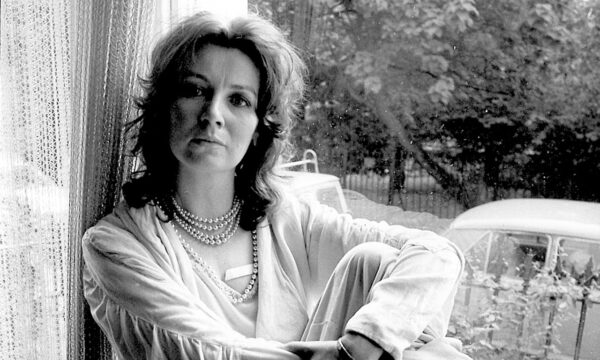
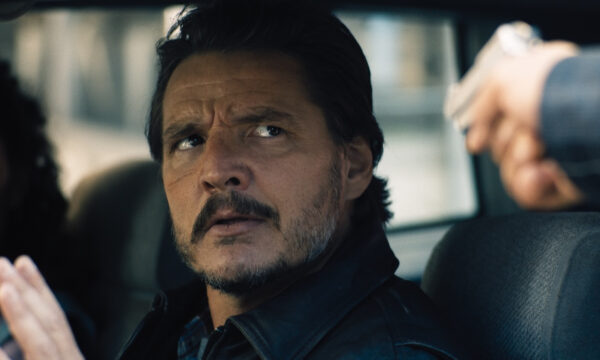
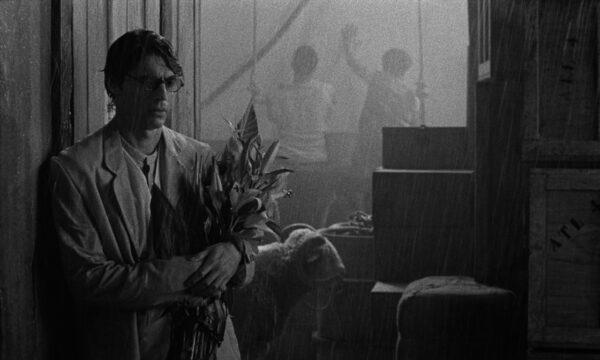
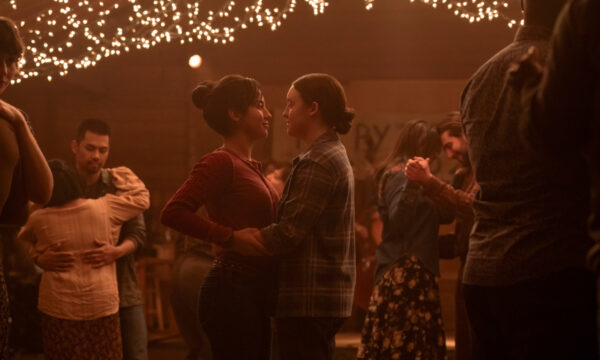
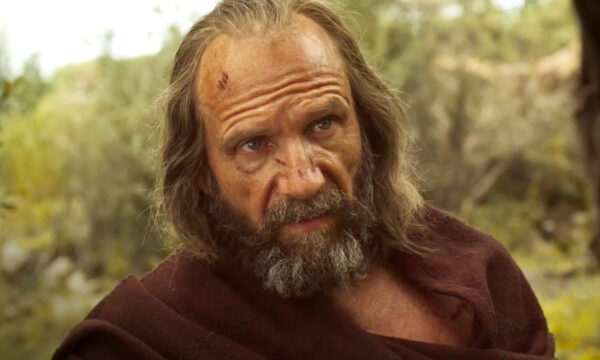
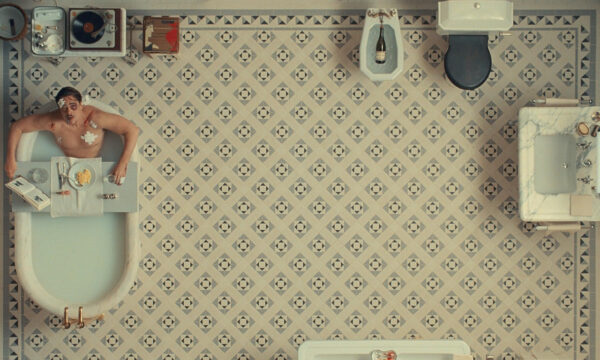
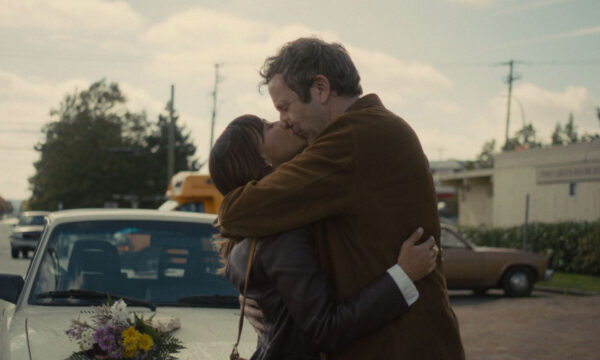
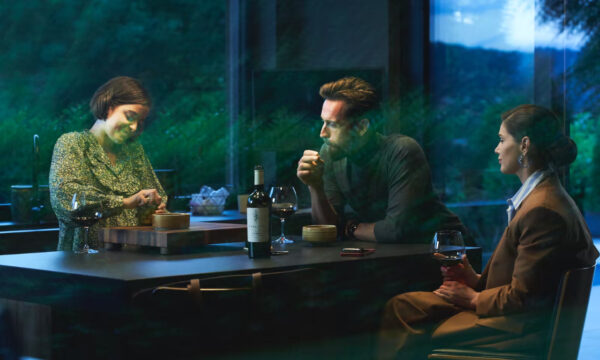
















Facebook
Twitter
Instagram
YouTube
RSS